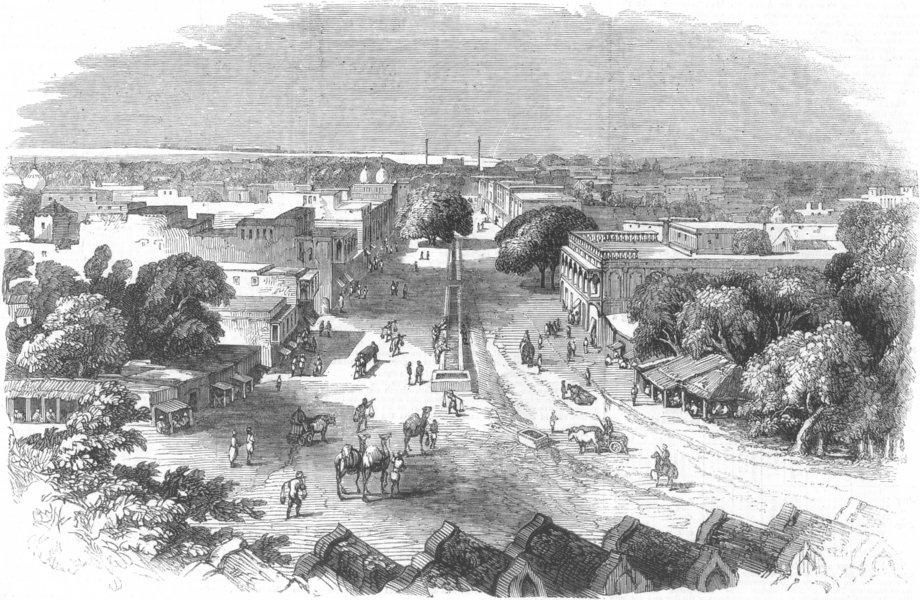FWP:
SETS == HERE/THERE;
KAHAN; PARALLELISM
GATHERINGS: {6,3}
INDEPENDENCE: {9,1}
ROAD: {10,12}
VEIL: {6,1}
ABOUT vaẓʿa : Why can't the lover arrange to encounter his beloved 'by
chance' on the public road? Perhaps because he is ashamed to play such vulgar
and transparent tricks. Or perhaps because he feels that his own personal
dignity won't permit such a public and one-sided pursuit of her. Or, just
possibly, perhaps because he knows that her lofty sense of her personal dignity
wouldn't permit her to speak to him in such a commonplace setting. Azad's
account emphasizes the cultural value attached to this kind of dignity and consistency
of personal style. For other treatments of the concept, see {116,8}; {126,2}; {136,7}; {233,3}. For a similar invocation of the requirements of 'courtesy' [adab], see {109,8x}.
For general discussion of the structural qualities of this ghazal, see {115,1}.
The first line juxtaposes, without comment, a picture of things 'there' and a picture of things 'here'. There, all is 'pride' [ġhurūr]-- pride in grandeur, pride in coquetry. Here, all is shame, modesty, veiledness [ḥijāb]-- the self-respect born of one's regard for 'character', for personal style and dignity [vaẓʿa].
If the first line offers us 'there' with the beloved, versus 'here' with the lover, the second line offers 'in the road' versus 'in the gathering'. Just as 'there' and 'here' are opposites in every way, so both the road and the gathering prove equally, though oppositely, impossible as meeting places.
And why can't the beloved invite the lover to one of her evening gatherings? Perhaps because she's too arrogant to invite such a humble person to a lofty social occasion. Or perhaps because she's too proud to admit that she actually craves his company. Or perhaps it's just that she too has her own vaẓʿa-dārī to consider.
What an elegant symmetry of opposites! He's too modestly dignified to shame himself by contriving to meet her on the road. She's too haughtily proud to shame herself by inviting him to a gathering. Nazm's complaint is that the symmetry is not perfectly developed: the first half of the first line connects to the second half of the second line, while the second half of the first line connects to the first half of the second line. But can't that count as symmetry of a kind? It's the symmetry, we might say, of an X.
In any case, lover and beloved will end up never seeing each other-- as the lover obviously realizes. Is he resigned? Is he despairing but determined? Does he find the whole contretemps ruefully amusing? Ghalib leaves us to decide for ourselves.
For another verse with a similar wry twist, see {126,2}; and compare also {205,4}.
Compare also Mir's evocation of the lover's stubborn pride: M{217,5}.

Azad:
It was the custom then [in Shah Hatim's time] among the ancient elders of Delhi, that once they had adopted something, they kept it up till their dying breath. And they called this 'maintaining one's consistency of style' [vaẓʿadārī] or 'regard for style' [pās-e vaẓʿa]. This was a law that went right up there alongside the Shariat. Such self-imposed rules in some matters took on the character of strength of mind, and are a source of proper pride to the country and the people of the country. And in matters of petty detail they are inappropriate burdens; they do not ruin merely families and lineages, but when they become widespread they ruin the country.
==Azad: Pritchett and Faruqi, p. 109